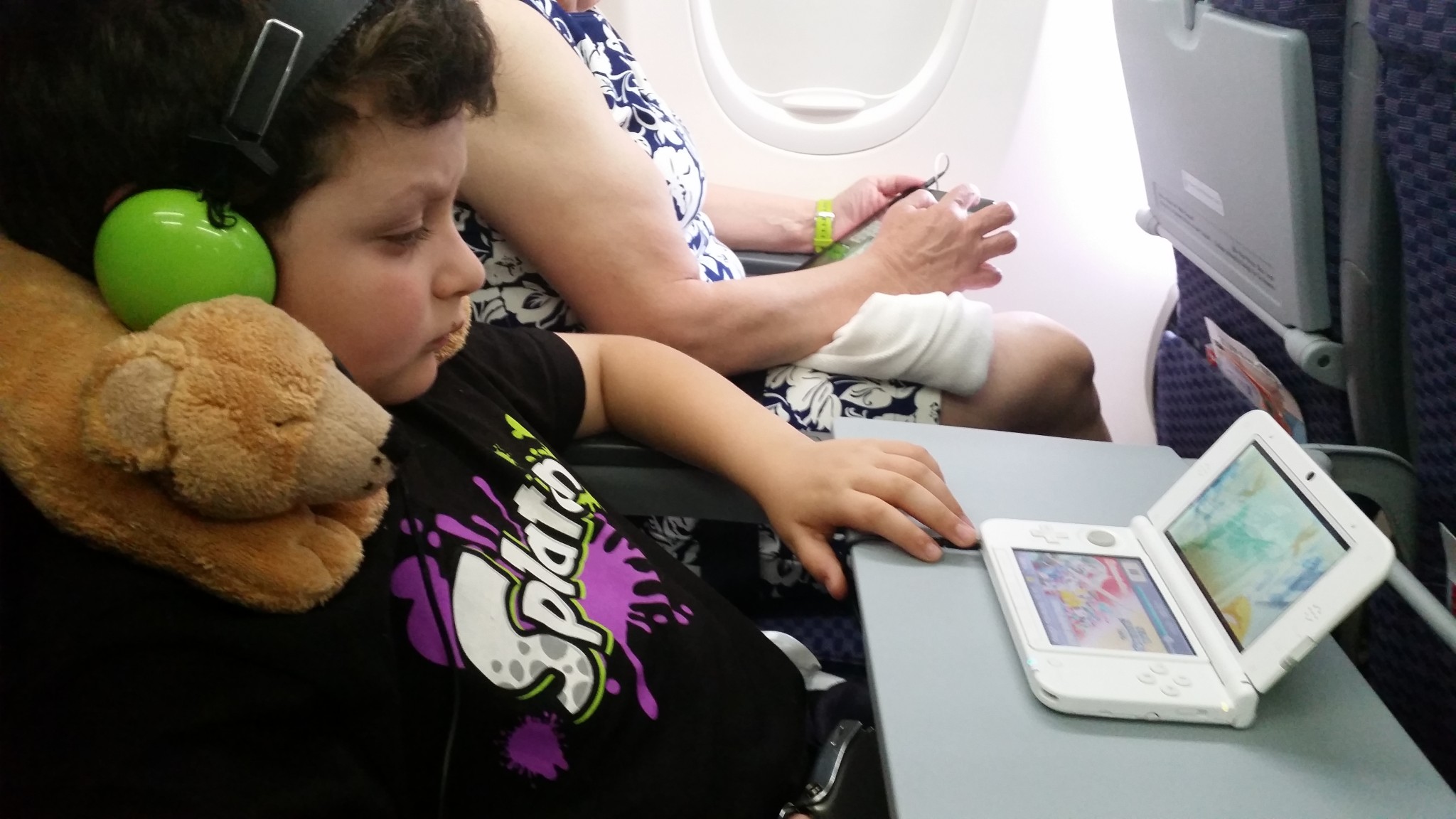Disclosure: In any review for a product or service, products or compensation may have been provided to me to help facilitate my review. All opinions are my own and honest. I am disclosing this in accordance with FTC Guidelines. Please see “Disclose” and "Terms of Use" tabs for more information.
There are plenty of things to love about air travel. Looking down through the clouds at the toy-sized cars and people rarely gets old. Those elf-sized packs of peanuts and pretzels and the tiny cups of soda have an oddly childlike charm. And at the end of the day, you’re hurtling through the air at 30,000 miles above the ground—what part of that isn’t exciting?

A first-class or even an exit-row seat will buy you some additional legroom, but unfortunately every seat carries the same risk of experiencing the unpleasant ear pain and popping that commonly happens during air travel. In most cases, the pressure and pain you feel is mercifully brief. Odds are your hearing will return to its usual levels just a few minutes after the plane lands. It’s rare to sustain permanent hearing loss as a direct result of a flight.
Just where does this popping and pain come from? And, more importantly, is there anything you can do to prevent it?
What Causes the Pain and Popping?
The ear problems you experience when you fly are caused by an imbalance between the air pressure in your middle ear and that of the air around you. This is especially true during takeoff and landing, when the air pressure in the cabin is rapidly changing, oddly enough, to keep you comfortable. When the pressure is lowered during takeoff, your eardrum begins to swell outward like a rising loaf of bread. The reverse happens when the pressure is raised during landing, causing your eardrum to get sucked inward. In both of these cases, the imbalance leads to the muffled hearing and uncomfortable pain and pressure.
Open Your Eustachian Tubes to Equalize the Pressure
The key to remedying this uncomfortable situation is to open your eustachian tubes in order to equalize the pressure. Less than an inch and a half long, these tiny tubes allow small volumes of air to enter or exit your middle ear. Here are a few simple ways to make this happen:
- Yawn a lot. Yawning is actually “contagious” so you may even be helping out the passengers around you.
- Swallowing is one of the easiest ways to open up the tubes and neutralize the pressure. To stimulate your mouth to make more saliva, gum chewing is often recommended. For infants, nursing, bottle-feeding or sucking on a pacifier can help. Older children can suck on lollipops or hard candy.
- Adults can also try a technique known as the Valsalva maneuver. Take a deep breath, then close your mouth and pinch your nose shut. Try to force air out until your ears pop. This is not recommended if you have a cold or allergies, since it could lead to additional complications. Instead, you can try the Toynbee maneuver, in which you close your mouth and nose and swallow a few times until the pressure equalizes.
Tips to Help Prevent Ear Pain
Everyone is different, so try a few of these to see what works best for you:
- Avoid sleeping during takeoff or landing—for many people this won’t be a problem!
- Stay hydrated during the flight by drinking fluids frequently. Ask for more water if you need it.
- Try wearing earplugs specifically designed for equalizing in-flight pressure.
- Use nasal spray an hour before landing. But be aware that over-use of these products can actually lead to greater congestion making it harder for your Eustachian tubes to do their job.
- Along those lines, a decongestant tablet before or after the flight may also be helpful as long as its use is approved by your doctor.
Ear pain and pressure are definitely not the travel companions you want to have. Keep them at bay with these tips. And if you wake up on the day of your trip with a sinus infection, cold or allergy attack, consider rescheduling your flight. When your sinuses are severely blocked your chances of serious ear damage rise considerably.
If you’re worried about your ears, or are concerned you may be suffering from hearing loss, it may be worth having them checked. The experts at Miracle-Ear offer free hearing evaluations at more than 1,200 locations across the country.
















These are all great tips! I just try to yawn a lot to help with the ear pressure.
i had this happen to me one time and it was really bad,,will try some of these the next time flying
I always deal with the ear pain too and sometimes it lasts for over a day or two. The last couple flights I took I was smart and took an allergy pill about an hour before my flight. It makes me more tired but no ear pain.
hello thank you for the great tips to help with or prevent pain and pressure in the ears when in an airplane.